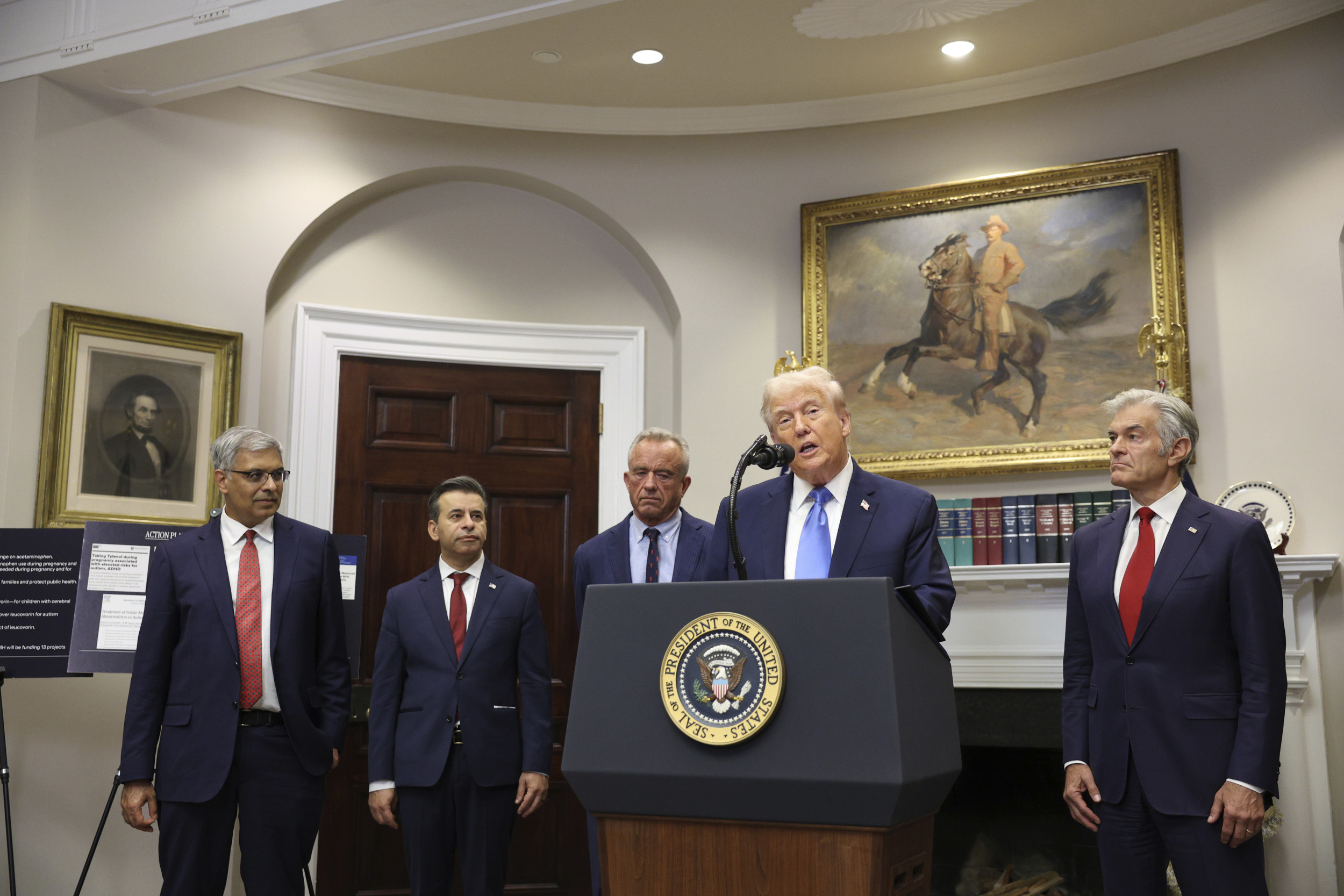
While Republicans in Congress have been pushing for major Medicaid cuts in the new budget, many Medicaid enrollees are worried about what this means for their health coverage — including those who identify as Republican.
A new poll from KFF revealed that 76 percent of Republicans enrolled in Medicaid are worried about potential funding cuts. The survey also shows that 17 percent of Republicans identify as Medicaid enrollees.
This didn’t come as a surprise to experts who spoke with Newsweek. “Many of the heavily Republican-controlled states are often the highest per capita recipients of government assistance,” Kevin Thompson, the CEO of 9i Capital Group and the host of the 9innings podcast, told Newsweek.
Why It Matters
Republican lawmakers have advanced sweeping changes to Medicaid as part of their budget reconciliation package, known as the “One Big Beautiful Bill Act.”
The bill, which passed the House in late May 2025, proposes to cut over $700 billion in federal Medicaid spending, threatening coverage for millions of Americans. The Congressional Budget Office estimated that more than 10 million people could lose Medicaid coverage if the proposal becomes law.

CHANDAN KHANNA/AFP via Getty Images
What To Know
Potential Medicaid reductions under the new legislation target several key areas, including the federal match for Medicaid expansion, spending caps, new work requirements, and more frequent eligibility checks.
While the GOP viewpoint has historically been pro-Medicaid reductions, cuts at this level could significantly impact the nearly 80 million Americans who rely on the program for health insurance, including a significant number of Republicans.
In the new KFF report, 76 percent of Republicans enrolled in Medicaid said they were worried about potential funding cuts. Additionally, more than a quarter of Medicaid enrollees are Republican, including one in five who identify with MAGA.
“As a government program, Medicaid provides benefits to millions of Americans in ‘red’ and ‘blue’ states,” Alex Beene, a financial literacy instructor for the University of Tennessee at Martin, told Newsweek. “As such, it should come as no surprise a sizable number of Republicans either receive benefits from the program or know someone who does.”
The federal government currently pays 90 percent of Medicaid expansion costs, but proposed reductions would lower this rate, threatening financial stability for states that expanded Medicaid under the Affordable Care Act.
Changes could also introduce per-capita caps or block grants, limit the use of provider taxes to finance Medicaid, and roll back simplified enrollment rules implemented under President Biden. Together, these measures could force states to limit enrollment, reduce benefits, or impose new costs on enrollees.
Republican leaders have tied these reductions to broader budget goals, including $4.5 trillion in tax cuts championed by former President Donald Trump.
“Many of the heavily Republican-controlled states are often the highest per capita recipients of government assistance,” Thompson told Newsweek. “That’s not meant to be disingenuous—it simply shows where the power lies: with the wealthy who control the districts and seats in those regions. The truth is, people often vote for their party and don’t believe these policies will ever impact them personally—until they do.”
House Republicans identified more than $880 billion in savings from Medicaid, with much of the debate focused on whether Medicaid should continue to support able-bodied adults without dependents, or remain narrowly focused on children, seniors, and people with disabilities.
The bill would also restrict Medicaid funding for certain health care providers, such as Planned Parenthood, and prohibit federal matching funds for gender-affirming care for minors.
Nationally, 54 percent of U.S. adults are worried that reductions in federal Medicaid spending would negatively impact their own or their family’s ability to get and pay for health care, the KFF report found.
“It’s a wake-up call for anyone who thinks Medicaid is just a Democratic issue,” Michael Ryan, a finance expert and the founder of MichaelRyanMoney.com, told Newsweek. “Medicaid isn’t red or blue. It’s the safety net stretched under millions of American families, including a significant slice of the GOP base.”
What People Are Saying
Alex Beene, a financial literacy instructor for the University of Tennessee at Martin, told Newsweek: “Over the last three election cycles, the Republican base has expanded far past the days of simply promoting tax cuts and has a large number of supporters who rely on programs like Medicaid for essential services. And while cuts to the program could occur, we’ve already seen blowback to any proposed reductions. That’s more than likely because some Republican members of Congress know cuts could dramatically affect their reelection chances.”
Michael Ryan, a finance expert and the founder of MichaelRyanMoney.com, told Newsweek: “There’s a real disconnect between the political talking points and reality. Many Republican voters may not realize just how much their communities (especially rural ones) depend on Medicaid to keep hospitals open and doctors in town. The myth that Medicaid is for ‘someone else’ is crumbling fast.”
Kevin Thompson, the CEO of 9i Capital Group and the host of the 9innings podcast, told Newsweek: “There will be a significant number of people kicked off the Medicaid program—either because they didn’t submit their work requirements on time, were removed due to the rollback of Medicaid expansion, or simply no longer qualify.”
What Happens Next
Ryan said if the cuts are enacted, rural hospitals will close, and working-class families will lose their health coverage.
“The fallout will land squarely in the heart of Republican country,” Ryan said. “You can’t gut the safety net and expect your own voters to walk away unscathed.”
“Medicaid cuts are political dynamite. History shows voters punish politicians who take away health coverage. Just ask Missouri and Tennessee. If Republicans push too hard, they risk alienating their own base.”




